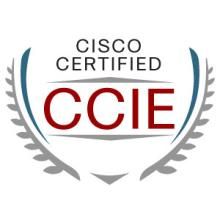I have passed my CCIE Lab exam at the first try with the help of SPOTO on 4, May 2019. I will give you some advice to prepare your exam.
1. Based on your learning direction, prepare the corresponding experimental equipment. Choose to build your own lab or use the equipment in the training center. Because the experimental equipment is quite expensive, most of the domestic candidates use the equipment of the training company. More recommended Shanghai SPOTO, 24-hour laboratory free to open to the college.
2. Prepare the required books and learning materials and familiarize yourself with the way to access Cisco online technical documentation. Because this is the only technical material you can refer to during the exam, it is also a must-have skill for Cisco technical experts, saving valuable exam time.
For every knowledge point, you need to know what it is, and you know why.
3. For each requirement in the exam, read and understand it carefully, and don't let go of every modifier. If you encounter a word you don't know, you can ask the examiner for help to ensure a complete understanding of the problem. When you have completed the configuration of a requirement, test and troubleshoot immediately. Avoid affecting others due to configuration errors of this feature.
4. Remember the port number used by commonly used network protocols. Based on the OSI model, the development of structured troubleshooting habits, according to the wrong appearance, can be started from the bottom, but also from the top.
Second, CCIE lab exam FAQ
When you are ready for the exam, remember: "Relax, maintain a healthy mind." In addition to this, here are some technical issues to be aware of:
1. If the task you are trying to accomplish needs to reference your previous configuration, whether you use ‘name’ or 'number’, make sure you match it.
2. Ensure that the meanings and calculation methods of the TIMERS and METRIC values involved in various routing protocols are accurately understood and how they are configured. The actual situation of the network should be matched as much as possible according to specific requirements.
3. Don't try to get hints or answers from the examiner at any time. There are uncertain words in the question to ask the examiner. The examiner will tell you the original meaning of the English. You need to understand the impact of a specific word on the technical requirements, such as ‘MUST’, ‘MAKE SURE’, and so on.
4. Some functions need to refer to the parameter 'absolute value' or 'incremental value'. They are two different concepts. Do not confuse according to specific requirements.
5, to complete a demand, sometimes there are several programs, we must carefully read and understand the requirements of the topic. Some keywords will give you hints, such as ‘CAN NOT’, ‘AVOID’, and so on.
6. After the lab exam begins, you must carefully read the precautions and requirements of the exam and the exam description. It contains a lot of very important information. Don't take it for granted. You must ask the examiner if you don't understand the problem.
7. Read the questions from beginning to end before answering the questions. Do as much as possible in the order of the questions. If there are any problems, skip it and do the next question. It is very likely that you will find the problem you just skipped. You know how to answer it.
8. Develop a good habit of making records. When you read through the topic, record the “key points” and “keywords” that you think are important on the draft paper. Don’t miss the “critical requirements” in the later configuration. ".
9. Manage limited exam time. After reading the exam questions, the number of questions you already know, the time required to properly assign each question, must not spend too much time on a small problem.
10, must know how to check the functions you have configured, Cisco provides a wealth of functional check commands, must pay attention to accumulation in the usual study, as many as possible to verify when the exam, to ensure that you configure the function accurately.

 Join Telegram Study Group ▷
Join Telegram Study Group ▷














